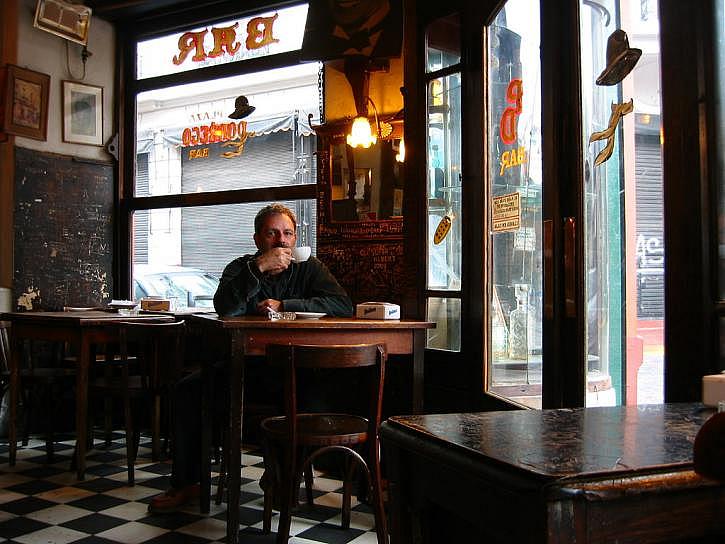In the middle of Greece’s worst economic crisis in a century I have decided to head for Argentina a country which a decade ago faced similar circumstances. I am wondering what all of us can learn from the Argentine experience. The following lines are the very first observation from a country I have never been in before. Obviously, all observations and mistakes are mine alone.
By Akis Kalaitzidis
Argentina is the seventh largest country in the world and has an economy twice the size of Greece as we speak, which tells us that it is no longer the rich and powerful economy it once was and the per capita income is about half of that of Greece. The country went through cycles of economic crises and military dictatorship the last of whom rocked the world in December 2001 when they defaulted. Ever since successive governments have tried to propel the economy out its downward spiral but have been largely unsuccessful.
According to the local people things have improved, there are no longer shortages of basic commodities but the country was caught flat footed in the default and for a long time things were not as easy. For some Argentines things are still not right, as evidenced by the many protest camps spread around the city of Buenos Aires and the dozens of homeless people living in doorways on Avenida Santa Fe. Argentines themselves are not shy about protesting, it took me about an hour in the city street before I encountered a massive demonstration that took me to the parliament building. On my second day I encountered the Mothers of Plaza de Mayo, whose relatives “disappeared” during the dirty War were protesting in the eponymous plaza while the veterans of the war in the Falklands/Malvinas in 1982 have a permanent encampment outside Casa Rosada, the Presidential palace, on the side of where the Mothers hold their protests. The state maybe in its weakest in a century yet the people do still take it very seriously and when I asked Fernando my guide “who organized the events of Wednesday” he responded curtly “I do not talk about that.”
I asked a local businessman how the economy is doing and what its future prospects are. His response was “we have exported an insane amount of food commodities and we still can’t turn the economy around,” when I asked him to elaborate further, he said “because of our default all export profits go to either service debt or for state purposes, very little is left for investing in economic infrastructure and no matter how many soybeans we sell unless we process ourselves it we will not be able to earn added value.” It seem that after its default the Argentinians have sunk further in the poverty trap. I wondered aloud, how much of all this mess was because of politics and politicians. He obfuscated, then he made a dismissing gesture, and he said “politics is in the center of it isn’t it?” when I pressed about the future direction of the country and the coming election in October, he seemed resigned and making a c’est la vie kind of gesture said “We’ll have to see what Queen Christina does.” Meanwhile, the streets are littered with posters of her heir apparent standing, as it seems, bit behind her and the national television touts the accomplishments of state owned companies in which she is the central figure.
The banks I visited for business in the center of the city looked stretched to their limits, lines stretching outside because ATM did not work, potholes cover much of the sidewalks and most people, being very helpful, would tell you not to chance your money there but to go down to Florida str. and change it there. An unofficial exchange rate of 13 pesos to the US dollar as opposed to 8.9 in the bank makes money changing a lucrative business for the money-changers there. Everyone fears another devaluation and so they are eager to hoard US dollars. Certain commodities are missing, not too many thank god, and some are prohibitively expensive because of the restrictions on imports. So, thus far this trip is very reminiscent of the politics and economics of Greece in the 1980’s before the country entered the Eurozone, but it might just be me…
About the Author
Akis Kalaitzidis is a Professor of Political Science at the University of Central Missouri.



